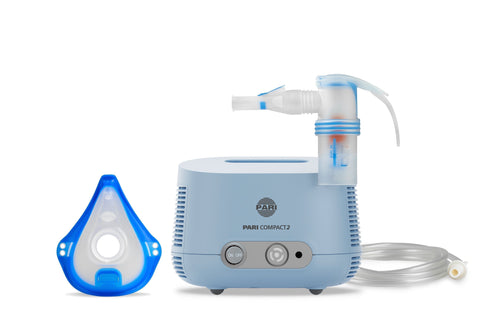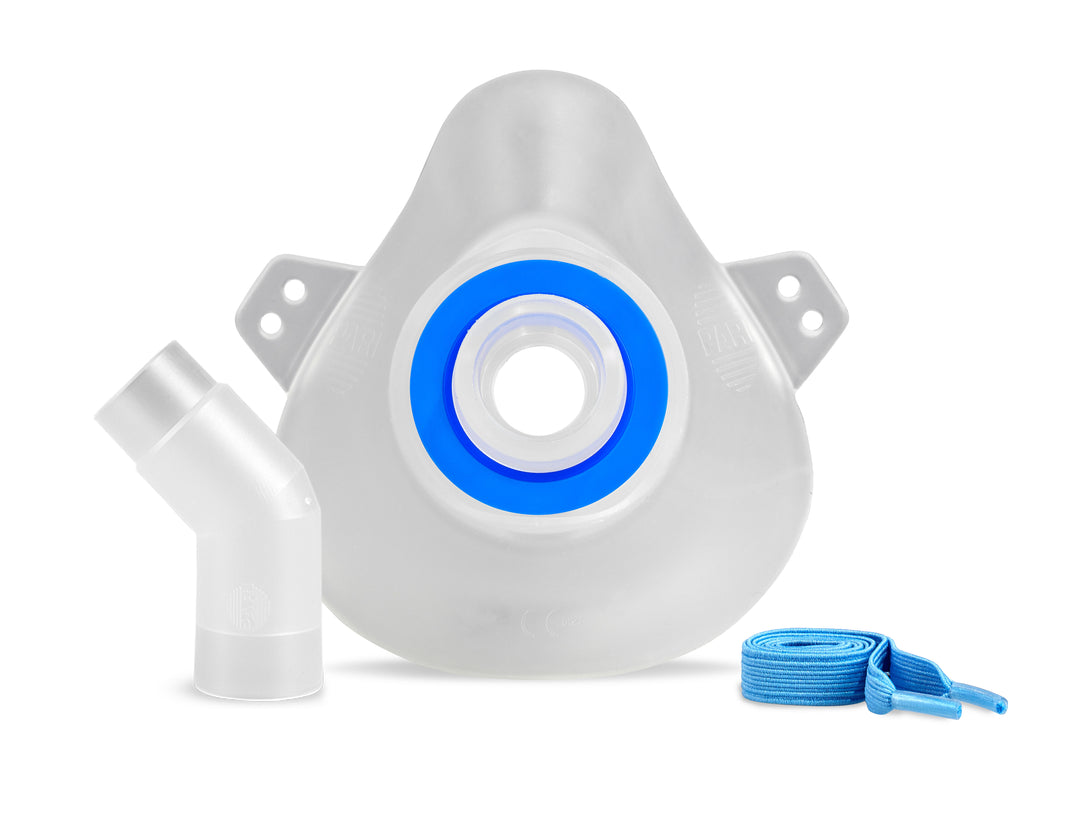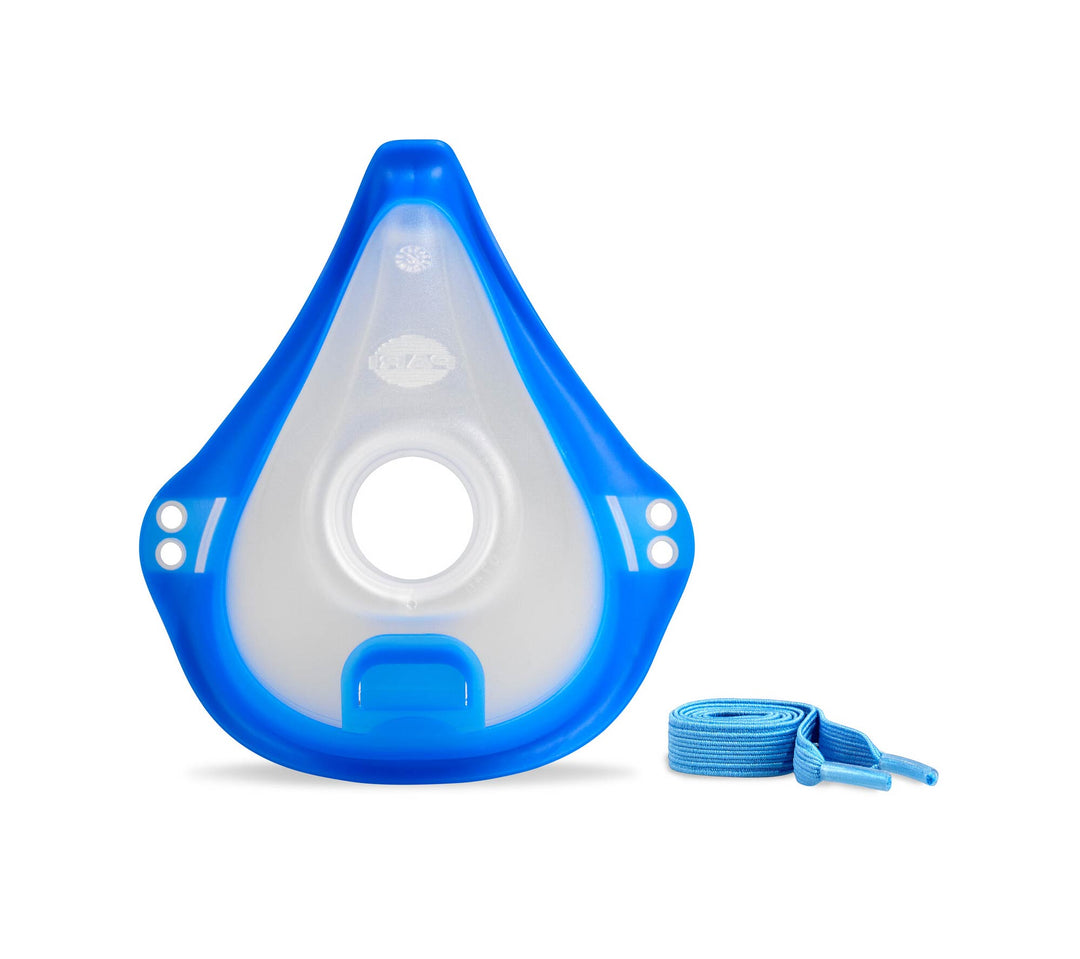
What is Cystic Fibrosis?

Inhaler vs Nebuliser: What’s the difference?

Mesh vs Compressor Nebuliser - which one is right for you?
Definition
Cystic Fibrosis, often shortened to CF, is a progressive inherited condition that causes the body to make thick, sticky mucus. This sticky mucus is a result of mucus membranes in the body not working properly.
They don‘t work properly because of faulty genes that a person with CF has inherited from both parents – this means you are born with CF & cannot catch it.
The sticky mucus means that the lungs and digestive systems of people with CF do not work properly. This results in breathing difficulties and digestive problems.
Symptoms
People with CF can have many symptoms, including very salty-tasting skin, persistent coughing, frequently with phlegm which results in wheezing or shortness of breath. People with CF often have frequent chest infections.
They also have poor growth or weight gain, even with a good appetite – this is sometimes called ‘failure to thrive‘. The mucus in the digestive tract results in frequent greasy, bulky stools or difficulty with bowel movements. Additonally, people with CF could have nasal polyps & chronic sinus infections. Finally, there are other consequencess like ‘clubbing‘ or enlargement of the fingertips and toes, and male infertility.
The sticky mucus in the gut makes absorbing nutrients from food more difficult, but the mucus is particularly problematic for the lungs. Over time the mucus can build up and this leads to breathing difficulties. The mucus build up also makes it easier to get chest infections, they then cause inflammation which leads to damage of lung tissue. Eventually over time, this damage leads to lung function decline. People with CF (especially those with established lung disease), often have a lot of treatments to try to keep their lungs as clear and healthy as possible.

Diagnosis
Diagnosis of CF is done by a blood test to check whether a person has the genetic signal to have CF. This has been done as part of ‘newborn screening‘ for all babies in the UK since 2007.
Treatment
There are over 70‘000 people with CF worldwide with approximately 10‘000 of those in the UK. People with CF are fantastically supported by the NHS via dedicated Cystic Fibrosis specialist teams, in regional centers of excellence.
People with CF will often have a high burden of treatment, these treatments typically fall into 3 categories.
1. Mucus clearance
2. Medication to help the airway & digestive systems
3. Novel gene therapy
Mucus clearance
Mucus clearance, or chest physiotherapy, is an important part of a CF patients daily treatment plan. Trying to clear the thick, sticky mucus from the lungs is vital. Removing this excess mucus, sometimes called sputum or phlegm, helps to keep the lungs open & able to work as best as possible. This can be through inhaled mucolytics, or mucus thinners (e.g. hypertonic saline), and/or using physiotherapy tools (e.g. PEP devices) to help loosen the sticky mucus so that it’s easier to cough up.
Medication
For their digestive tract, people with CF need specialist medicines & supplements to help their digestive tract & help people with CF get the nutients they need to maintain a healthy weight. They are often supported by specialist dietitians based in their specialist CF team who help them with a balanced diet that simultaneously gives people with CF the additional calories they need.
For their airways, people with CF might need to take oral, intravenous and/or inhaled antibiotics to the treat lung infections – this can be at home or at the hosptial and often uses modern, fast nebuliser devices. They might also need treatments that help their upper airways & sinuses.
When it comes to these medicines & treatments for their airways, people with CF should always follow the advice & instructions given by the doctors, nurses, physiotheratists, dietitians and other highly specialised healthcare professionals that make up the multi-disciplinary clinical team who support them.
Gene-therapy
These novel drugs, sometimes called ‘CFTR modulator therapy‘, are very powerful & have a significant impact to correct some of the consequences of the genetic faults that cause CF. They have a huge benefit for both the digestive tract & the airways.
Because of the complex nature of the genetic faults that cause CF, these drugs currently work for the majority of people with CF but they don‘t work for everyone. Pharmaceutical companies are working to remedy that by trying to find ways to make these novel drugs work for everyone who has CF.
Final advisory
Please note that if you are a person with CF & have any questions about your Cystic Fibrosis, we would recommend that you ask the healthcare professionals who look after you – the highly qualified team of healthcare professionals should always be your first point of call. They will know you best & know what might work best for you.
Disclaimer: none of the above constitutes medical advice & you should always seek help from a qualified healthcare professiona such as your GP, hospital consultant, nurse or pharmacist.



